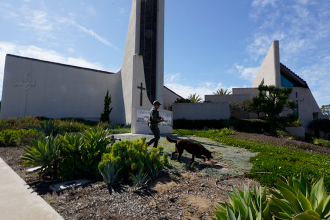Civil Rights Groups Oppose Baltimore’s Surveillance Plane Pilot Program
In a recent announcement, the Baltimore Police Department revealed plans for a pilot program that involves the use of three surveillance planes flying over the city. The aim of this program is to combat violent crime, but it has been met with strong opposition from civil rights groups in Baltimore. The American Civil Liberties Union (ACLU) of Maryland and the Coalition for Justice, Safety, and Jobs have jointly expressed their concerns about the program, stating that it will have a detrimental impact on the privacy rights of Black and Brown residents for generations to come.
The joint statement issued by the ACLU and the Coalition emphasizes that the use of surveillance planes will put every Baltimore resident under permanent surveillance. This raises significant concerns about the potential infringement on civil liberties and the disproportionate impact it may have on marginalized communities. The statement argues that the program is a “fateful step” that could have far-reaching consequences, warranting careful consideration and public discussion.
Baltimore Police Commissioner Michael Harrison, who was initially skeptical of the program, now sees it as an additional tool to fight the increasing violence in the city. He announced that the test period for the program could last up to six months and that the planes would collect imagery during high crime hours. The technology utilized by the program is developed by Ohio-based Persistent Surveillance Systems. The collected imagery will be reviewed by investigators for specific crimes, with the police having no access to live feeds.
Harrison believes that Baltimore will be the first American city to use this technology in an attempt to solve and deter violent crime. However, the pilot program, set to launch in May 2020, has stirred controversy due to its secretive trial run three years ago under a different police commissioner. Top officials were unaware of the program’s use in 2016 until it was reported by Bloomberg Businessweek. During that trial period, more than 300 hours of images were captured, primarily focusing on criminals arriving at and leaving crime scenes.
Persistent Surveillance Systems, the company behind the technology, defended their involvement by highlighting the positive outcomes of the 2016 test. According to the company’s president, during the short trial, they observed five murders and 18 shootings, providing valuable information to investigators. The company expressed its commitment to supporting the people of Baltimore in their efforts to reduce major crime in an open and transparent manner.
To address the concerns raised by civil rights groups and the general public, Commissioner Harrison has promised a series of meetings to inform the community about the program and its potential benefits for the city. He also reassured the public that the cost of the program would be covered by philanthropic funds, rather than taxpayer dollars.
While the intentions behind the surveillance plane pilot program may be aimed at reducing crime, it is crucial to consider the potential impact on privacy rights and the potential for disproportionate targeting of certain communities. The concerns raised by civil rights groups highlight the need for transparency, public dialogue, and careful consideration of the long-term consequences of implementing such measures.
“During the short test in 2016, in the equivalent of two weeks of flying, we watched five murders and 18 shootings and provided that information to investigators. We look forward to supporting the people of Baltimore in their efforts to reduce major crime and we look forward to doing so in a very open and transparent way,” the Commissioner said. There is an effort to reform police departments throughout the country, but there is still progress to be made.















